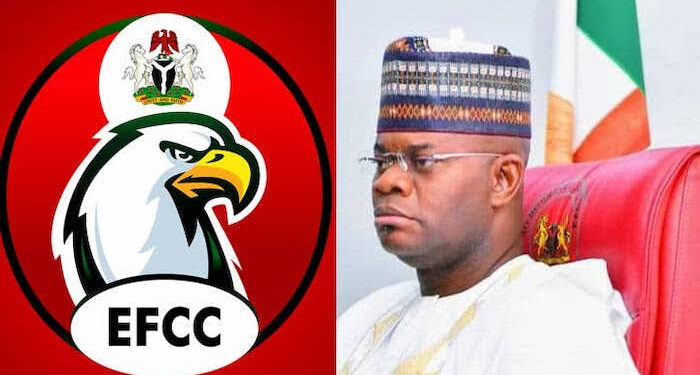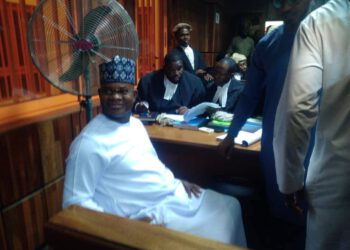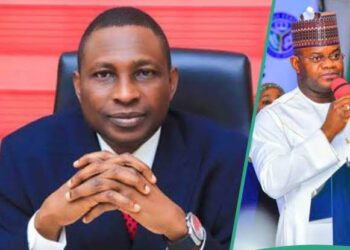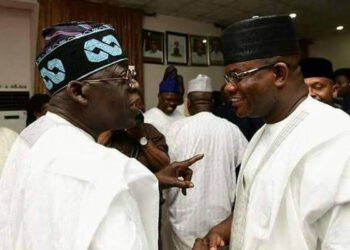As Nigerians await the arraignment of Kogi State’s former governor, Yahaya Bello, over allegations of public fund diversion leveled against him by the Economic and Financial Crimes Commission (EFCC), legal practitioners and human rights activists have raised concerns about the lack of cooperation among law enforcement agencies.
They identify this as a major factor contributing to the persistence of corruption in public offices.
They argue that the poor coordination between agencies—especially the EFCC, the Police, and the Department of State Services (DSS)—has been a significant obstacle to the government’s efforts to combat corruption and enforce law and order across the country.
Speaking on the case between the EFCC and the former governor on Monday, the experts emphasized that the lack of support from other agencies has been the primary reason behind Bello’s evasion of arrest and his defiance of court orders.
They pointed out that although the EFCC is determined to ensure the former governor complies with the law, the Police and DSS personnel attached to him are shielding him from any attempts to compel him to account for the allegedly diverted public funds.
According to these experts, Bello has no immunity that shields him from arrest or arraignment in court for the allegations against him.
Commenting on the delay in Bello’s arrest, a prominent legal practitioner, Adeyemi Sulaimon, criticized the inefficiency of the law enforcement process, arguing that the entire issue—such as the EFCC trailing Bello to different locations or receiving immunity from Kogi State Governor Ahmed Ododo—should not have arisen if the Police and DSS were performing their duties effectively.
Sulaimon added that even if the current governor is protecting his predecessor from arrest, Bello could still be apprehended if the Inspector General of Police and the DSS were genuinely interested in enforcing the law.
He stated: “This whole drama is very amusing because the EFCC should have been able to arrest the former governor by now and spare us from this unnecessary show. The situation is simple. The former governor and the incumbent both utilize the services of the Police and DSS. All that is needed is for the IGP and the DSS boss to send signals instructing the police and DSS personnel not to obstruct the EFCC when they attempt to arrest Bello, and that the immunity only applies to the sitting governor, not his predecessor.
“Before long, the former governor would be standing trial. But that’s not the case here. Instead, the country is wasting taxpayers’ money to fuel vehicles chasing him, while the same law enforcement officers, funded by the state, are preventing his arrest.
“I believe these agencies need to work together and support one another. The cooperation Nigerians expect is not what we see on camera, but one that works seamlessly as intended. If we can achieve this, the country’s resources will be better utilized for other important matters,” he added.
Human rights activist and legal practitioner Gedion Okebu also criticized both former Governor Bello and his successor, Ododo, for obstructing justice.
He asserted that no one is above the law, and that Yahaya Bello’s evasion and resistance to arrest is, in itself, a criminal act.
“When officers of the law are prevented from carrying out their lawful duties, the law empowers them to use the arms they bear to ensure the performance of their duties, provided the force used is not unreasonable in the circumstances.
“However, it is an aberration for Kogi government officials to harbor and abet a fugitive like Yahaya Bello, who has been declared wanted. The rule of law must prevail, and it should not be subject to political games,” he added.





















